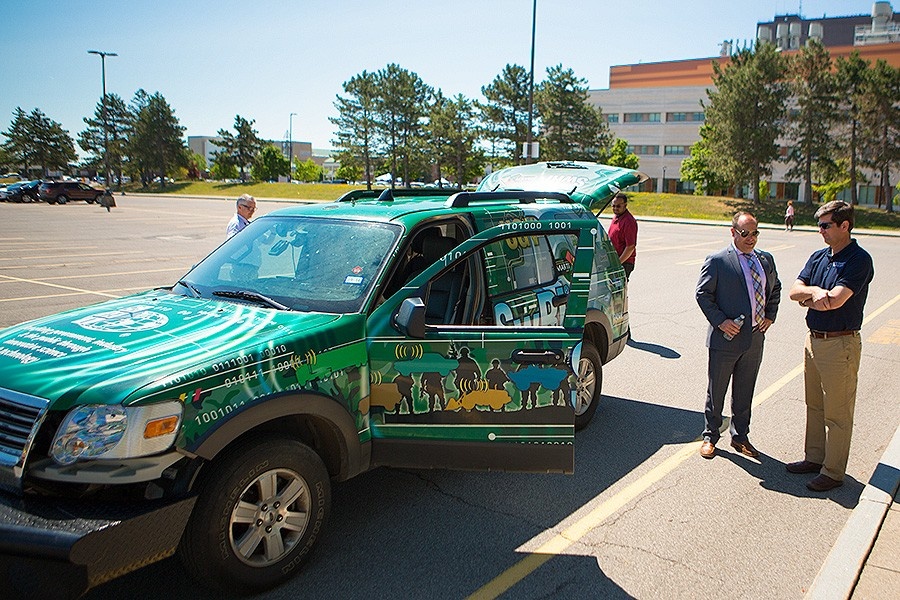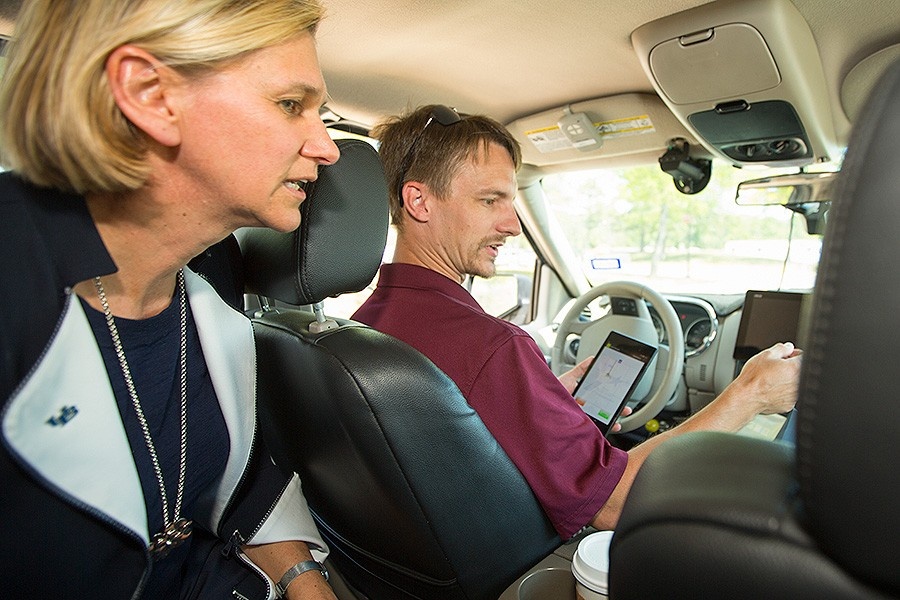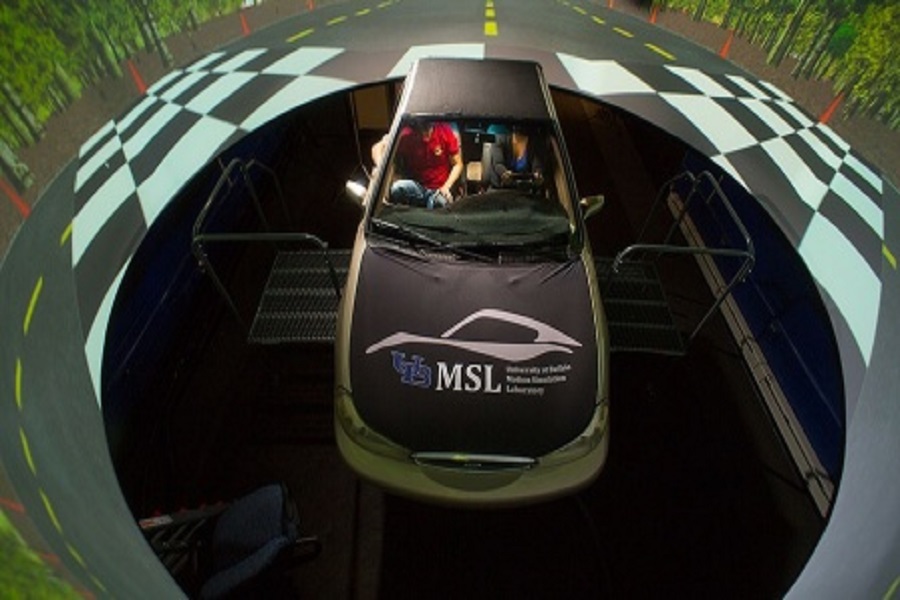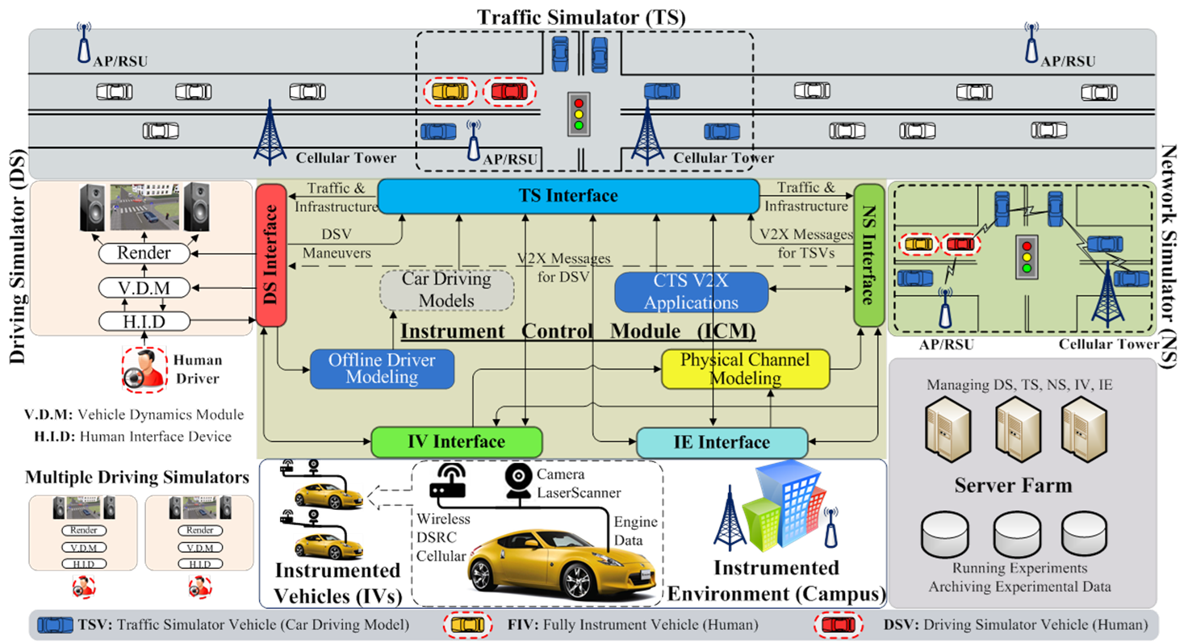
|
Overview Although surface transportation systems are indispensable for our society, several alarming statistics on accidents and fatalities, congestion, fuel consumption and emissions have raised serious concerns. While emerging technologies for Connected Vehicles (CV) and Autonomous Vehicles (AV) will bring transformative changes, many open research challenges remain. Moreover, new designs, technologies, infrastructures and applications must be evaluated and validated before their deployment. This project develops an integrated 5-in-1 instrument for Connected and Autonomous Vehicle Evaluation and Experimentation (iCAVE2). It is the first-of-its-kind with unprecedented capabilities, not offered by any simulator-based instrument or test-beds in academic, industrial or government-based R&D laboratories. It bridges the gap between existing simulators and road testing facilities by providing a flexible, scalable (and yet low-cost), and more importantly, safe (and yet realistic) platform for comprehensive and holistic evaluation and experiments of CV/AV technologies and their applications. Thus, it is particularly suitable for answering various "what-if" questions related to safety, efficiency and sustainability arising from human-automation interactions with not-yet-available technologies and rare/extreme events (e.g. severe weather or emergency situations). The instrument is useful to researchers in academia and IT industry, and developers and decision makers in the auto-manufacturing, auto-insurance and government transportation agencies. The instrument will also be useful to run CV/AV algorithms and applications to collect data and enable many advanced research activities related to Big Data in transportation systems.
The instrument, consisting of 1) a driving simulator (DS), 2) a traffic simulator (TS), 3) a network simulator (NS), 4) several instrumented vehicles (IVs) including an AV, and 5) an instrumented environment (IE) (a part of UB North campus), is the first-of-its-kind with unprecedented capabilities, not offered by any simulator-based instrument or test-beds in academic, industrial or government-based R&D laboratories. The development effort will train graduate and undergraduate students as well as high-school students in the STEM field. It will also contribute to better driver training and driver rehabilitation related studies and programs. Previous Project on CTS The Cyber-Transportation Systems (CTS) Project, founded by NSF/CPS and Cisco was started at State University of New York at Buffalo in 2010. The project takes a multi-disciplinary approach that combines cyber technologies, transportation engineering and human factors. It has two closely related objectives: 1) Design and evaluate new CTS applications and traffic operations for improved traffic safety. 2) Design and develop an integrated traffic-driving-networking simulator. Please go to the following link for more detail. | |





